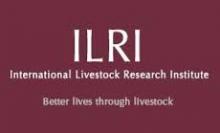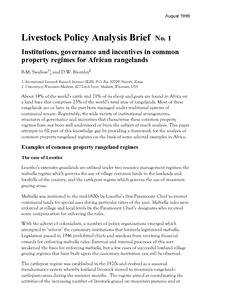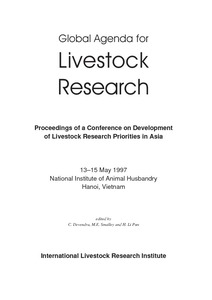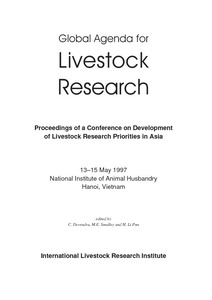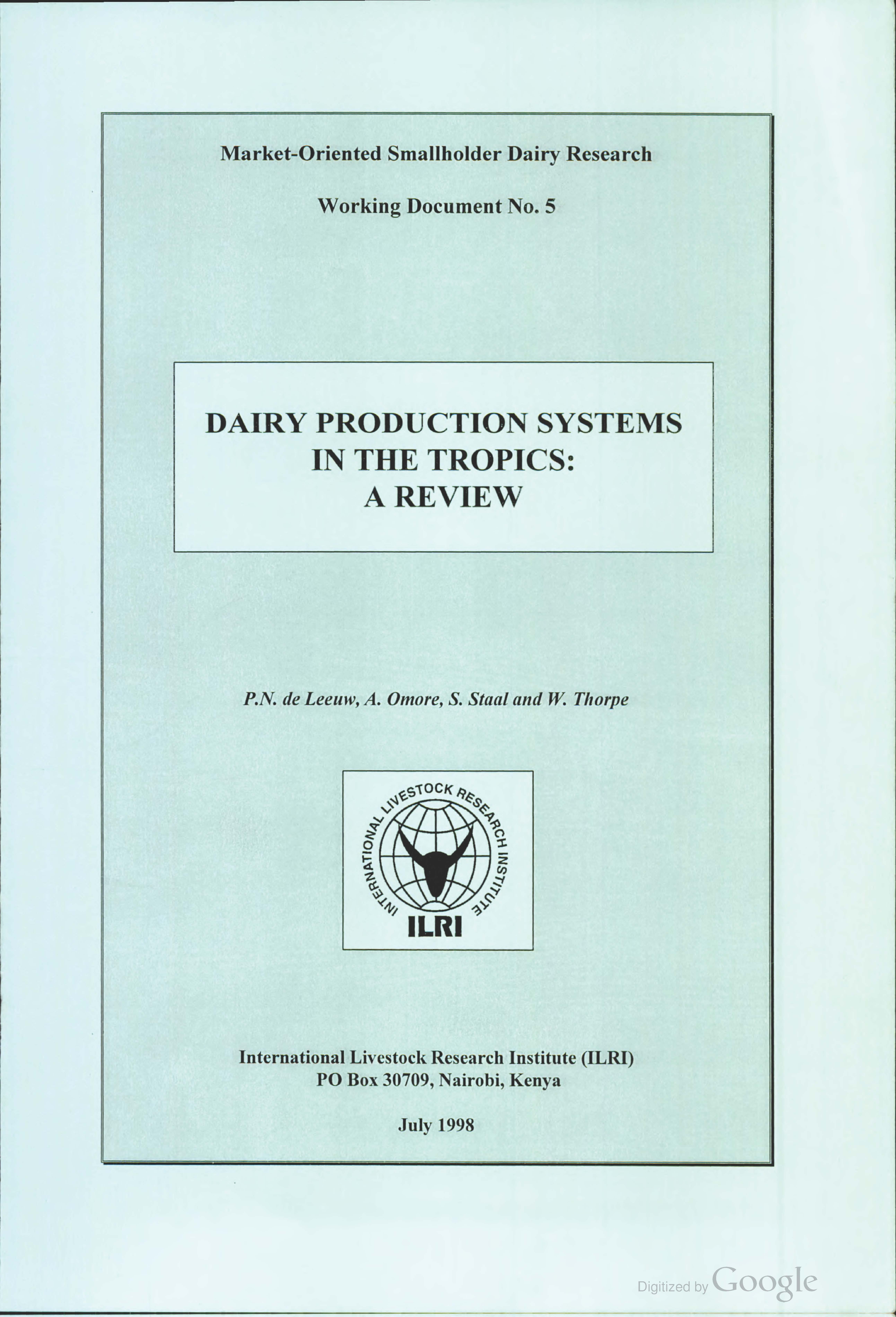Location
Vision, mission and strategy
ILRI's strategy 2013-2022 was approved in December 2012. It emerged from a wide processof consultation and engagement.
ILRI envisions... a world where all people have access to enough food and livelihood options to fulfil their potential.
ILRI’s mission is... to improve food and nutritional security and to reduce poverty in developing countries through research for efficient, safe and sustainable use of livestock—ensuring better lives through livestock.
ILRI’s three strategic objectives are:
- with partners, to develop, test, adapt and promote science-based practices that—being sustainable and scalable—achieve better lives through livestock.
- with partners,to provide compelling scientific evidence in ways that persuade decision-makers—from farms to boardrooms and parliaments—that smarter policies and bigger livestock investments can deliver significant socio-economic, health and environmental dividends to both poor nations and households.
- with partners,to increase capacity among ILRI’s key stakeholders to make better use of livestock science and investments for better lives through livestock.
This is ILRI’s second ten-year strategy. It incorporates a number of changes, many based on learning from the previous strategy (2000–2010, initially produced in 2000 and modified in 2002), an interim strategy (2011–2012) and an assessment of the external and internal environments in which the institute operates.
Members:
Resources
Displaying 936 - 940 of 1152LPA Brief No. 1. Institutions, governance and incentives in common property regimes for African rangelands
About 14 % of the world's cattle and 21 % of its sheep and goats are found in Africa on a land base that comprises 25 % of the world's total area of rangelands. Most of these rangelands are or have in the past been managed under traditional systems of communal tenure. Regrettably, the wide variety of institutional arrangements, structures of governance and incentives that characterise these common property regimes have not been well understood or been the subject of much analysis.
ILRI: mission, vision, programme and collaboration
The International Livestock Research Institute (ILRI) began operations in 1995 with the consolidation of two Consultative Group on International Research (CGIAR) - sponsored livestock research centres: the International Laboratory for Research on Animal Diseases (ILRAD), in Kenya, and the International Livestock Centre for Africa (ILCA), in Ethiopia.
Global agenda for livestock research: Proceedings of a conference on development of livestock research priorities in Asia
This proceedings presents the results and conclusions of ILRI's role in livestock research and development in Asia. It provides a detailed testimony of the success of the consultation, and especially about ILRI's commitment to form integrated programmes for livestock and agricultural research with national partners and others.
Development of cow traction technologies and implications for adoption in the East African highlands
Production performance of cows is an important factor which determines whether cows are adopted for draft power. Working cows could perform at higher levels of efficiency than oxen, but only if nutrient inputs are adequate to meet their greater requirements, and milk production and reproduction are kept at levels comparable to non-working cows. ILRI (International Livestock Research Institute) and the Ethiopian Institute of Agricultural Research (IAR) have reached different aspects of the use of dairy cows for draft work.

